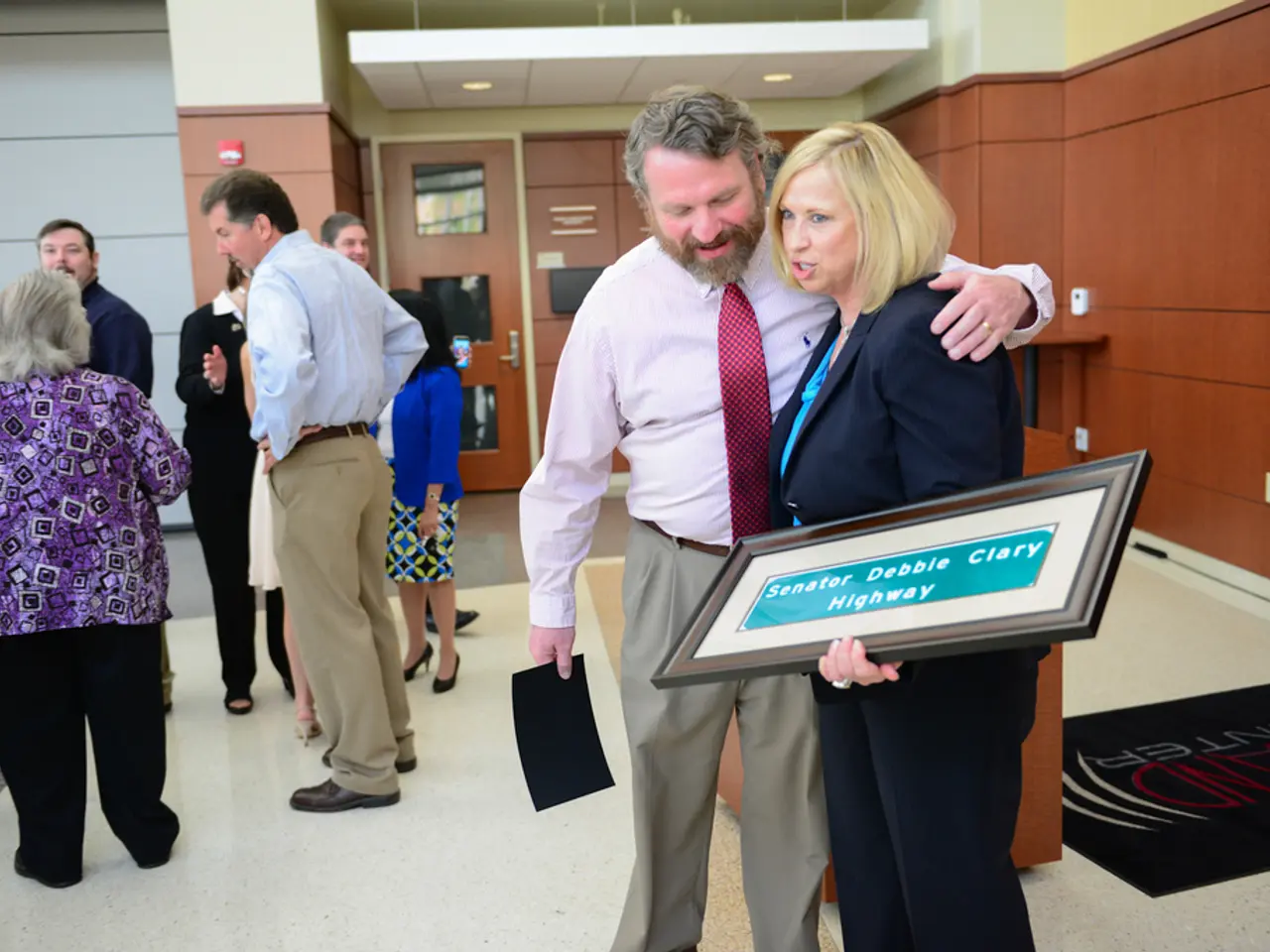Trump administration discontinues the 'press 3' option for LGBTQ adolescents within the 988 Lifeline service.
The Trump administration's decision to end a specialized suicide prevention service for LGBTQ youth through the 988 Suicide & Crisis Lifeline has sparked widespread criticism and concern. The move, effective July 17, 2025, comes as a result of the Substance Abuse and Mental Health Services Administration (SAMHSA) being directed to close the LGBTQ+ Youth Specialized Services program [1][2][4].
The Trevor Project, one of the nonprofits administering the program, has described the termination as "devastating" and a removal of a bipartisan, evidence-based service that had supported over 1.3 million LGBTQ+ young people at high risk of suicide [1][4]. The administration has stated that it would "no longer silo LGB+ youth services," implying that while specialized services for LGBTQ youth would end, all callers to 988 would still have access to general crisis counseling [2].
However, critics argue that this move erases the specific needs of LGBTQ youth and reduces tailored, culturally competent support at a critical time for these vulnerable groups [1][2]. Senator Tammy Baldwin of Wisconsin, who wrote the bipartisan legislation that created 988 and the specialized service for LGBTQ+ youth, has condemned the closure as "cruelly and needlessly" taking away a vital lifeline during Pride Month [3].
The demand for the Suicide & Crisis Lifeline is growing as more people become aware of it. Despite the loss of the specialized service for LGBTQ youth, the Lifeline remains available for everyone to call or text, connecting individuals to a counselor [6]. The demand for specialized services for LGBTQ youth through the Lifeline has been consistently high, with approximately 70,000 young people contacting 988 per month this year [5].
It is important to note that the Trevor Project, which handles about half of all 988 contacts by gay and trans youth, will continue to support the mental health and crisis needs of LGBTQ+ youth [7]. The specialized service for veterans through 988 continues to operate as planned. To access help from the Trevor Project, LGBTQ+ youth can visit thetrevorproject.org/gethelp.
In conclusion, the Trump administration's decision to end the specialized suicide prevention service for LGBTQ youth through the 988 Suicide & Crisis Lifeline has been met with widespread criticism. Advocates argue that the move is politically motivated and harmful to the mental health of LGBTQ youth. Despite the loss of federal funding, the Trevor Project and the Suicide & Crisis Lifeline remain committed to supporting those in crisis.
References: [1] https://www.nbcnews.com/feature/nbc-out/trump-administration-end-specialised-suicide-prevention-service-lgbtq-youth-rcna60994 [2] https://www.huffpost.com/entry/trump-administration-ends-lgbtq-youth-suicide-prevention-hotline_n_611c5d53e4b074e2c546a97c [3] https://www.cnn.com/2022/06/29/politics/tammy-baldwin-lgbtq-suicide-hotline-trump-administration/index.html [4] https://www.thetrevorproject.org/news/trevor-project-statement-on-trump-administrations-decision-to-end-specialised-services-for-lgbtq-youth/ [5] https://www.thetrevorproject.org/get-help-now/ [6] https://988lifeline.org/ [7] https://www.thetrevorproject.org/
- The government's decision to end the specialized suicide prevention service for LGBTQ youth through the 988 Suicide & Crisis Lifeline has raised concerns within the community, with critics accusing it of being politically motivated and harmful to mental health.
- The Trevor Project, a key provider of this specialized service, continues to support the mental health and crisis needs of LGBTQ youth, even in the face of the government's decision to close the LGBTQ+ Youth Specialized Services program.
- Advocates argue that the move to remove this bipartisan, evidence-based service, which had supported over 1.3 million LGBTQ+ young people at high risk of suicide, may erase the specific needs of these vulnerable groups within the broader context of general-news and health-and-wellness discussions, particularly mental health.




